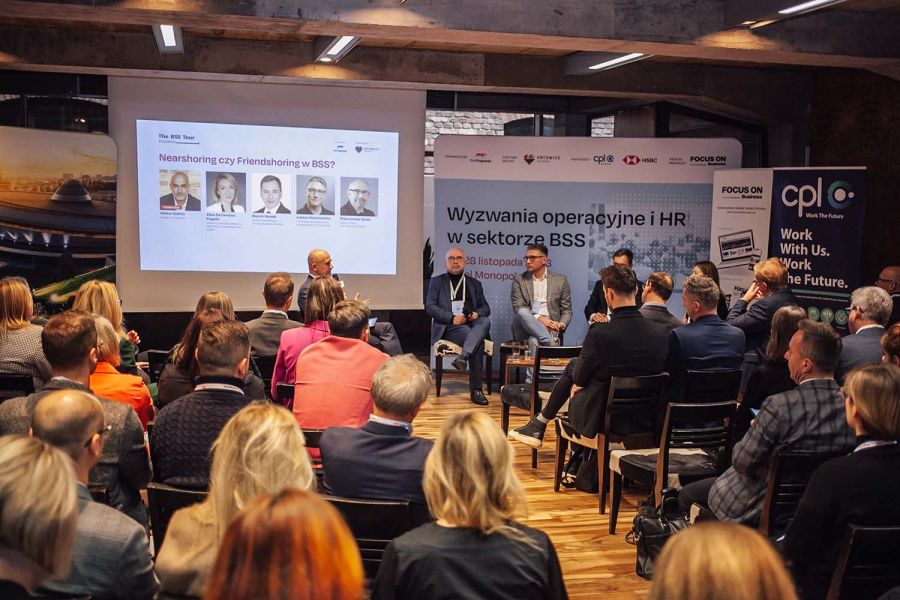Are you prepared for the future? The GIG economy is gaining ground

Let’s be honest – flexibility is the new reality! It’s time to adapt to GIG economy.
In 2040 Gen Z will be the biggest generation on the Polish job market. Recent research made by Cpl, shows that 31% of this gene ration want to be a freelancer in the near future (up to 5 years) while 39% of Gen Z in Poland wants to work remotely or in hybrid model. Since the pandemic, location is no longer a limitation in performing work. In the next 5 years a big part of our jobs might be automated or replaced by AI.
GIG economy boom
In recent years, the GIG economy and flexible employment have gained significant traction in various countries around the world. This innovative approach to work has revolutionized the traditional employment landscape, offering individuals greater flexibility, autonomy, and opportunities to earn income. The GIG economy refers to a labour market characterized by the prevalence of short-term contracts, freelance work, and temporary positions. It is driven by technology platforms that connect individuals with job opportunities on a project-by-project basis. This model allows workers to be their own bosses, choose their own hours, and work on projects that align with their skills and interests.
Adapting to a flexible future
Poland, a country known for its strong work ethic and entrepreneurial spirit, is no exception to this trend. Our local companies striving for a competitive advantage now understand the potential of the GIG economy and are implementing it in their companies, gradually adapting to the ongoing changes. Poland has experienced a significant rise in flexible employment in recent years. Around 80% of IT experts prefer a B2B contract over an employment contract.
According to the EY & GIGLIKE report: “GIG on. New Deal on the labour market”, in 2025 GIGers will constitute up to 20% of employees in Poland. This can be attributed to several factors, including the advancement of technology, changing work preferences, and the desire for greater work-life balance. Many individuals in Poland are now opting for gig work as a means to supplement their income, pursue their passions, or gain valuable work experience.
Challenges and opportunities
The GIG economy and flexible employment offer numerous benefits to both workers and employers. For workers, it provides the opportunity to have a more flexible schedule, choose the projects they work on, and develop a diverse skill set. It also allows individuals to earn income from multiple sources, reducing their reliance on a single employer. For employers, the GIG economy provides access to a larger pool of talent, allowing them to find the right skills for specific projects without the need for long-term commitments. While the GIG economy and flexible employment present exciting opportunities, they also come with their fair share of challenges. One of the main challenges is the lack of job security and benefits typically associated with traditional employment. Gig workers often do not have access to health insurance, retirement plans, or paid time off. Additionally, the GIG economy can lead to increased competition and downward pressure on wages.
However, there are also opportunities to meet these challenges. Policymakers can work to create a regulatory framework that protects the rights and benefits of gig workers. Nowadays, companies wanting to be attractive clients provide freelancers with access to affordable health care and other benefits that are usually offered only to permanent employees of a given organization. Additionally, organizations can play a role in supporting gig workers by offering training and development opportunities, creating collaborative networks, and developing a sense of community.
Reshaping Poland’s employment landscape
The GIG economy and flexible employment have the potential to significantly impact the Polish economy. By providing individuals with the opportunity to earn income through gig work, it can contribute to reducing unemployment rates and stimulating economic growth. Additionally, the GIG economy can foster innovation and entrepreneurship, as individuals are encouraged to develop their own businesses and pursue their passions.
Since the evolution of the GIG economy is already underway, it is worth summarizing several trends and forecasts regarding the future of the Polish market. Primarily, demand for contingent/B2B workers will increase across a variety of industries, including technology, financial services, sales, and healthcare. This will create new opportunities for people with specialist skills and expertise. Technological progress, such as artificial intelligence and automation, is also creating new job categories and will change the nature of work.
Conclusion
The GIG economy and flexible employment are shaping the future of the Polish market, offering individuals greater flexibility, autonomy, and opportunities to earn income. While challenges exist, there are also opportunities to address them and create a more inclusive and supportive environment for gig workers. As Poland embraces the GIG economy, it has the potential to unlock new sources of economic growth, innovation, and entrepreneurship.
The future of work in Poland is indeed exciting, and the GIG economy is set to play a significant role in shaping it. Is your company ready for this?
Author: Katarzyna Piotrowska, Country Manager, Cpl Poland
This article comes from magazine:
FOCUS ON Business #15 March-April (2/2024)
 Check the issue
Check the issue








